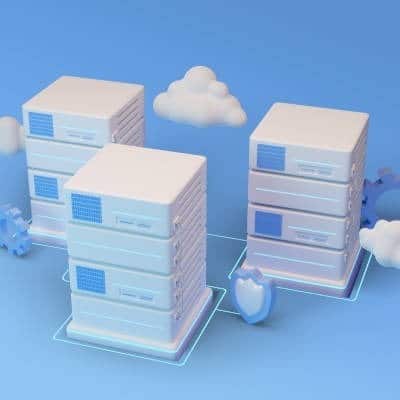Attacking Businesses During COVID-19 The deadly novel coronavirus is still in the forefront of most people’s thoughts, and as a result, many people remain home. With so many people kept from going out, people are relying on the Internet. Some businesses have shifted to remote, some haven’t but rely on online orders and support, and many others are effectively out of work, putting a lot of people online at once. For scammers and hackers, this is an ideal situation. They have taken this opportunity to set up spoofed websites that are designed specifically to get people to let their guard down enough so they can gain access to their accounts, including their business’ accounts. Unfortunately, this has become extremely common. Of the 1.2 million new COVID-19-related domains that have been built during the time spanning March 9-to-April 26 nearly 86,600 malicious websites have been created. 80 percent of those distribute malware if interacted with. An incredible amount of COVID-19 spam and phishing messages have also appeared. Some fraudulent email campaigns have claimed to come from the IRS, the CDC, healthcare organizations, and other companies. Protecting Your Business from Scams What are you to do with so many obvious (and some not-so-obvious) scams? You need to stay vigilant and remember that even though you are at home, on your home computer, that you need to function like you are on your workstation in the office. All the best practices you’ve been trained on in the office apply now and should be maintained. They include: Watch out for phishing – Whether it’s through email, messaging, or social media, keeping a skeptical eye out for phishing emails and spoofed websites will go far in keeping your business secure. Use strong passwords – Managing your passwords and keeping them up-to-date with the latest security best practices can go a long way toward securing your business. Keep data backed up and safe – Just because you are working from home doesn’t mean that your data is any less important. Keep it backed up and secured with antivirus and a comprehensive firewall. The IT professionals at SRS Networks have the experience needed to keep your business’ network secure during these hard times. Call us today at (831) 758-3636 to learn more.
Laptops and Remote Work Recent events have made a device’s portability a major selling point, as it makes it easier for work to be done from home. However, rather than moving back and forth to the office, these laptops have effectively become ad-hoc desktops—never moving, and as a result, rarely being unplugged. Is This Bad for the Battery? The answer to this question depends quite a bit on how old the device you are using from home is. In the not-so-distant past, the batteries found in a mobile device were made up of much different compounds and materials. This left them vulnerable to overloading if left plugged in, damaging the battery and (among other impacts) reducing its lifespan. Today, the batteries that manufacturers use are made of a lithium-polymer or a lithium-ion. This means that, rather than overloading, any extra power can be diverted to the device directly, supplying power while the battery waits in reserve. Additional Battery Concerns Of course, overcharging isn’t the only risk presented by leaving a device plugged in. As anyone who has used a laptop before will likely know, they can get extremely hot as they operate while connected to a power source. This prolonged exposure to heat can also cause some damages that could harm the battery over time and diminish its performance. A study by Battery University demonstrated that different temperatures could reduce the battery’s overall capacity when it is always plugged in. The cooler the temperature, the smaller the impact to the battery. This tells us that, at least under the right conditions, leaving your laptop plugged in is okay to do… if you have the means to keep it cool. For more advice and direct assistance with your business’ technology, the team at SRS Networks is available. To learn more about what we can do, give us a call at (831) 758-3636.
Block Sender Of all the things that make managing email difficult, spam has to be at the top of the list. In fact, it can be downright dangerous. Spam can be reduced, but it’s very difficult to eliminate entirely, so it’s important to be diligent. Outlook’s spam filter is very well received, but a couple manual tweaks will improve it even more. The Block Sender option is pretty straightforward. You choose an email sent from an address that you identify as spam, you right-click on the email, choose junk from the dropdown menu, and click Block Sender. This will ensure that you don’t get any more email from that address. Outlook’s Rules Obviously, you want your email to work for you. Fortunately, Outlook’s rules are incredibly flexible, and dynamic. To make Outlook yours, you will want to spend some time and assess how to change these rules to fit your needs. Let’s try a simple change: Say you are working on a project and you want to direct all the emails that come in about that project into a custom folder in Outlook. You can make a rule that completes this function for you. Just select the first email you want to move into a custom folder. Go to Home > Rules > Create Rule at which time you will be prompted with “When I get email with the selected conditions (Subject, From, Sent to) do the following”. After which you will enter the conditions that will set the filter allowing you to see the emails that you want. Outlook is a solid tool that has a lot of features that can help you be more productive. Call SRS Networks today at (831) 758-3636 to talk to one of our IT professionals about working with Microsoft Office 365.
Defining Each On-Premise Solutions On-premise solutions are those that a business keeps in their office, on privately-owned and maintained servers. The actual makeup of these solutions varies from business to business, as it is dictated by each business’ needs. Cloud Solutions As you might imagine, cloud solutions are mostly those that are hosted off-premises. The cloud is a fanciful term to what amounts to data centers filled with servers, dedicated to providing invaluable services and resources to the businesses that rent them out. Let’s consider the positive aspects to each, as well as how these aspects measure up to the other’s less-positive features in comparison. Benefits of an On-Premise Solution One of the primary benefits of a business hosting its own server is the idea that control remains in the business’ hands. If a power outage—a basic and common enough business continuity threat—were to strike, a business hosting its own solutions on its own hardware could mitigate it effectively by turning to a backup power source until the outage was resolved. Comparatively, a business relying on cloud-hosted solutions also relies on the cloud provider to prevent downtime. In a similar vein, a business with control over its infrastructure is therefore in more control over its security. In theory, this means that a business can ensure its security is best suited for its environment and needs when its resources are kept in-house, close to the chest. Whether or not this is the case, however, also depends on the business. Benefits of a Cloud Solution Comparatively speaking, a cloud-hosted solution is going to be much more cost-effective for a business of any size to implement. For one, you aren’t obligated to pay for any more resources than you need in the moment, as you would when investing in your own hardware. This freedom gives you considerable flexibility to scale your use of the cloud as needed. In addition, you also don’t have any responsibilities directly associated with maintaining this hardware, eliminating those expenses as well. This also frees up your internal teams to focus on other priorities and projects. Of course, there are drawbacks to choosing exclusively between one or the other option. With on-premise servers, any upgrades are based on your schedule and your business’ financial capabilities, while cloud servers may not always be available (leading to downtime) and potential data security concerns are another concern that an on-premise server doesn’t have. This is why many businesses settle somewhere in the middle and elect to use both, in what is called a hybrid cloud, utilizing the best of both worlds. SRS Networks can help you determine which of these options is best for your business’ circumstances. Talk to one of our consultants today by calling (831) 758-3636.
Establishing Your Space Whether in the office or working remotely, make sure that your webcam isn’t going to pick up something that you wouldn’t want broadcast. Trying to find a quieter area and requesting not to be disturbed until further notice can greatly reduce your chances of being interrupted mid-meeting. Beyond that, make sure that your background is tidy and that nothing is visible to the camera that is sensitive, embarrassing, or some combination of the two behind you. This, paired with the right lighting, will make you look all the better to your colleagues. Another way to look better to your colleagues is to do a bit of grooming so you really do look better to them. Sticking to the company dress code and cleaning yourself up a little can go a long way, especially now that so many are operating from the relative comfort of home. Stick to the Plan Anyone who has participated in a video conference knows that—despite the vastly different format—the same pitfalls that throw an in-person meeting off course can have just as much of an impact. For instance, tangential conversations and idle chit-chat can expend your available time and distract from your primary goals. One big way that you can mitigate some of this is to minimize the opportunity for drifting thoughts and lulls in the conversation. Preparing an agenda and gathering any reference materials needed beforehand creates an itinerary to follow. Sharing these materials with participants ahead of time allows them to have questions and suggestions prepared, as well as can help avoid any interruptions from someone having an issue opening a document. Of course, you need to be sure you are planning for a little bit of casual conversation. Good manners dictate that a brief check-in with the other participants be allowed, so act courteously and plan for your participants asking each other about their lives. Continue this Courtesy Of course, during a remote meeting, the rules of etiquette will need to adjust somewhat to match the meeting’s environment. For starters, in-person meetings don’t commonly feature microphones, but remote ones rely on them. Keep in mind that your mic is live, and that any noises in your home can be extremely distracting to your fellow team members. While it isn’t recommended that you remain muted all the time, make sure that you do so as needed. Your coworkers don’t need to be aware of what you hum to yourself on your bathroom breaks, after all. It is also important that you devote your full attention to the meeting at hand and focus on what is going on around you. Even if you aren’t currently involved with a project, there may be something mentioned that you need to hear. Don’t waste the time of the other people in the meeting by working on other things or checking your email. With these guidelines to start off from, your remote meetings (as well as your face-to-face ones) have a much better chance of success. SRS Networks can provide the technology and IT solutions you need to support your remote collaboration and video conferencing. Find out how we can help by calling (831) 758-3636.
Explaining VoIPA VoIP solution hosted in the cloud is a full-featured telephone system for your business. In these troubling times, more businesses have begun to look to a hosted VoIP system than ever before. Chances are that your business already pays for more bandwidth than it uses. This extra bandwidth is just wasted money but utilizing it would stretch your budget further. VoIP provides that opportunity. By cancelling your overpriced business telephone system and switching to a cloud-based VoIP system, you will save money and enjoy some of the following benefits: Access to Expert Technicians – Maintenance is critical for the effectiveness of your VoIP system. If you host it in-house, you unfortunately have to take care of the maintenance of it yourself, which can be difficult and costly, but if you choose a cloud-hosted option the provider will manage the solution. Important Security Benefits – Rather than risk a breach happening, today’s VoIP platform protects you with encryption. Every call’s data is encrypted before it leaves for its destination, thereby protecting your business’ assets in a way that may not be possible otherwise. Increased Mobility – A hosted VoIP solution gives your business many additional opportunities to boost productivity and efficiency. For example, being able to simply forward a call to a user’s smartphone creates the mobile support that many businesses find ideal today, and that can really work as businesses figure out their next move. Powerful Features – One of the most important features of the hosted VoIP platform is the myriad of features that can be provided alongside the dynamic telephone service. Not only are there dozens of calling features, a hosted VoIP platform gives you the option to add video conferencing, instant messaging, and more. It doesn’t matter if your business has 30 employees or 300, a hosted VoIP solution is right for you, if you are looking to embrace mobility and improve efficiency. Call SRS Networks today at (831) 758-3636 to learn more about switching your business’ telephone system to VoIP.
How Businesses Can Benefit from Managed Services Right Now It goes without saying, but businesses everywhere are feeling the impacts of widespread orders to close their doors in the attempt to minimize the continued spread of COVID-19. While this makes the idea of any major operational shifts intimidating for the small business owner, the transition into a managed service agreement can ultimately help protect your business from closing for good. Let’s look at a few of the difficulties that the COVID-19 pandemic has caused for businesses, and how working with a managed service provider (MSP) makes these difficulties somewhat less of a concern. Challenge #1: Businesses Can’t Operate with their Teams Staying Home Naturally, without their employees coming in to work, businesses have found it difficult to keep up on their workloads. This obviously isn’t a great situation for these businesses. However, in the face of such a pandemic, employees can hardly be blamed for wanting to minimize their chances of infection by staying home. This is an especially big problem for businesses deemed essential, as people are still relying on their services, but they can’t in good conscience put their employees at risk. With an MSP’s support, it is much easier to find a balance to maintain operations, especially for those businesses who can sustain themselves via remote work. While this may not apply to all industries, those that can function without employees needing to come into the office can adopt the solutions and security required to do so. In these cases, an MSP can serve as a useful resource by helping to manage the use of these solutions. Challenge #2: IT Support is Difficult to Acquire Safely Working from home is one thing. Receiving support for the technology that is used in the home is (for many) another can of worms entirely. While this is true in most circumstances, the need to keep our distance from one another makes this a larger concern. You don’t want to put your team members, or the repair technician for that matter, at risk. An MSP can help resolve this situation on two fronts, both thanks to the remote nature of managed services. First of all, the management of your IT means that an MSP’s technicians will always be using remote monitoring tools to catch and diagnose issues on the devices that your team uses. Secondly, with the same remote access, the MSP can then resolve many of these issues without an in-person visit at all, whether your team is in the office or working remotely. Challenge #3: The Economy Isn’t Strong Enough to Invest in Any Additional Services Let’s do a quick comparison between how the traditional IT services will bill your business, compared to what is included by an MSP. The old-school repair service doesn’t incorporate additional fees into their rates, like time and materials. As a result, the total price can be wildly unpredictable, and practically impossible to budget for accurately. On the other hand, by offering a predictable service covered by a comprehensive monthly fee, the MSP’s rates can be budgeted for and scaled with the services delivered. With a few exceptions for out-of-scope services, a business that signs on with an MSP can operate with the confidence that they know what their bill will say each month […]
Include Your Staff This is as big of a crisis as any of us have ever dealt with. You need to have your staff on your side if you are going to get through this situation. Some ways you can make this happen include: Keep everyone updated. Transparency can be looked upon with a lot of respect. You don’t have to share anything with your people, but making an effort to keep them in the know will work to keep them engaged. Some things, however, don’t foster any optimism and should probably be kept to yourself. Set the tone. As the boss, your staff looks to you to lead. You, like millions of other business owners, have never had to deal with anything quite like this, but staying out front and positive will keep others from letting pessimism creep in and negatively affecting their opinion of their work. Trust your people. If you are one of the lucky businesses that have been able to work through the pandemic, you’ve probably learned that trusting your people is of the utmost importance. You may have gone into this situation skeptical and afraid, but the world has changed and your business will need to change along with it. Making Necessary Adjustments If you haven’t had to deviate from your strategy, you are in the minority. This situation has caused a lot of businesses to fail outright. Those that prosper have changed course somewhat. Here are some tips to help you make the adjustments you need to make during this turbulent time. Assess your business. With things slowing down, it gives you time to completely assess where your business is at. Do you have the necessary liquidity, is your technology and your procedures up-to-date? Doing a full assessment will go a long way toward building preparedness. Make the hard calls ahead of time. After your assessment, you will be in a better place to make difficult business decisions proactively. Inaction or ignorance could cost you everything, so staying out in front of your decision making is key. Adjust using new tools. Technology can be used to create new workflows that get your products and services out. COVID-19 has been good for innovation, consider doing a bit of that for your business. Keep Your Chin Up The most important part of staying positive is to keep a healthy frame of mind. Some tips to do so include: Ignore Negative Opinions. This can be harder to accomplish than you may think, but one way to keep from being overwhelmed with negativity is to cut yourself off from all the talking heads out there. They say ignorance is bliss, and finally there is a situation where that saying is an actual strategy. Help. Helping other people can bring a lot of positivity for both the people that need help and for you. The best way to stay positive is to help others find positivity. Managed IT services are good for cutting support costs and keeping your IT–which is critical now–running effectively and supported. Call SRS Networks today at (831) 758-3636 to learn more.
Why is it so Important to Have a Secure Conferencing Solution? Prioritizing security is a consideration that needs to be made on every part of your IT. In regards to conferencing, a secure strategy is crucial as these apps are some of the most targeted by cybercriminals right now. Diligently choosing the right technology for your business, and implementing practices that have your business’ cybersecurity in mind, will go a long way toward keeping your business secure as you heavily lean on your conferencing solutions. Some of the video conferencing applications are proven to be more secure than others. With so many people using these applications, it’s important to implement these four security strategies: Create Secure Policies Does your business have a Bring Your Own Device (BYOD) policy? If so, you will want to fashion your video conferencing solution in the same manner. It’s extremely important for your remote employees to understand that while the solution may have some security features baked in, it is on them to use good judgement and not put strain on your cybersecurity infrastructure by ignoring the best practices. Here are some line-items that should be in your policy: Users need permission from all attendees in order to record a meeting. Personal devices should not be used to record meetings. Confidential or sensitive information should not come into view during the meeting unless it is expressly relevant or requested by meeting attendees. All cameras and microphones should be disconnected when not in use. If sensitive information is to be shared, it should be done so securely and not in group meetings. Authentication and Control Many of the most used conferencing apps feature a single-sign on (SSO) system. The SSO makes it easier for administrators to control user access, but it doesn’t necessarily work to secure the solution. If your solution offers two-factor authentication, that is a good way to ensure the person signing into your meeting is the person supposed to be there. Another strategy is to set up domain-based security. This provides network administrators the most comprehensive tool to manage access to video conferencing solutions. Be Sure to Use Encryption Any conferencing solution your company uses should come equipped with 128-bit AES encryption. You will also want to deploy this on the hardware where you run the meetings to ensure that all data sharing that happens during the meeting is protected. Update Your System A video conferencing solution is like any other software system, it needs to be updated and patched regularly. This will make absolutely sure that your systems are protected from any vulnerabilities that would be found in antiquated version builds. Video conferencing is the star of the stay-at-home orders and its place in business has been fortified. Call the security professionals at SRS Networks to get more information about security surrounding your video conferencing apps.
Cloud Computing in the Context of Today’s Businesses Even if a lot of business owners don’t always trust cloud computing for their most important computing needs, they have likely been utilizing some type of cloud platform for a while. The cloud is computing that is hosted on rented hardware and is broadcast over a broadband Internet connection. These computing options are normally managed and maintained by the service provider and are billed at a static monthly rate, whether that be per user or per gigabyte. Many businesses use Software-as-a-Service (SaaS), which is the most popular (and expansive) cloud computing delivery method, but more businesses are now subscribing to other cloud-based tools such as Infrastructure-as-a-Service (IaaS), which delivers hardware solutions billed per gigabyte. For the modern business, cloud computing fits seamlessly. It provides them with the opportunity to get the computing resources they need, without taking on the huge financial investment that new hardware traditionally demanded. It also allows for dynamic scalability, a major benefit as to not waste money on computing resources your company doesn’t need, but giving your business the ability to quickly get the necessary resources when you need them. Cloud Options As stated above there are options for most parts of your business, including: Hardware Virtualized hardware is useful for a multitude of purposes. It can present options to host specific applications or a dedicated platform for application development. The main advantage of purchasing hardware in the cloud is that you can virtualize local computing resources and not waste money like many businesses that rely on onsite computing resources do. Software Let’s take a look at some of the most popular options available: Line of Business – Companies are hosting their line of business applications in the cloud so that they can be assured that people have access to this essential software from any place at any time. Productivity – Productivity software has long been a driving force in cloud deployment. With titles like Microsoft Office 365 and Google’s G Suite available, businesses can get complete suites of tools they need to help them be productive and improve collaboration. Communication – Solutions like Hosted Email and VoIP have changed the way that business views its communications. Security – Security is extremely important and today’s cloud platform is more secure than cloud resources of the past. Not only are there full-fledged security suites available in the cloud, the cloud itself can deliver more security options, providing businesses with all the options they need to keep their networks and cloud platforms secure. The Internet of Things, a major innovation to the way people interact with products, is fueled, in large part, by cloud computing. There are quite literally dozens of secure and reliable cloud platforms available to run IoT, AI, and much, much more. If you are looking to outfit your business with more cloud-based platforms, contact the IT professionals at SRS Networks today at (831) 758-3636.
- 1
- 2










